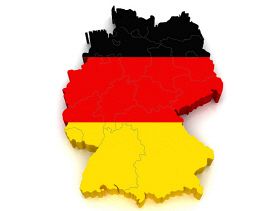 New results for July show German dairy farms’ slip in profitability: 100 per cent workload and 100 per cent product quality – but barely 66 per cent of costs covered. The updated study on milk production costs of the German Office for Agriculture and Agricultural Sociology BAL clearly reveals the dreadful financial state of dairy farms in July this year.
New results for July show German dairy farms’ slip in profitability: 100 per cent workload and 100 per cent product quality – but barely 66 per cent of costs covered. The updated study on milk production costs of the German Office for Agriculture and Agricultural Sociology BAL clearly reveals the dreadful financial state of dairy farms in July this year.
Germany
In Germany, the milk price of 29,42 cents was far from covering the average cost of production of 44,79 cents. Yet, this imbalance in the milk sector and its dramatic consequences for producers and rural development is not only a German problem. As milk prices reported from the other countries show, drastically falling prices have become the norm everywhere in Europe. In Lithuania for instance, producer prices are between 10 and 19 cents a litre. In Belgium farmers only get 25 cents for one litre of milk and in Denmark 29 cents. The dairy sector in Europe thus currently faces a deep crisis, which forces many dairy farms out of business. But despite all the facts and information on the sector, EU Commissioner Hogan still refuses to acknowledge the existence of a crisis. The political passivity resulting from this postpones the problem, aggravating it even further.
Milk crisis tool
The reason behind these price drops: since April, production in many European countries has increased significantly. In Ireland for example, between April and August 2015 production increased by more than 12 per cent compared to the same period last year. In Germany, the Netherlands and Poland as well production volumes rose by more than 7, 2.5 and 3.3 per cent, respectively. Nevertheless, an efficient tool would allow to limit overproduction. The European Milk Board (EMB) has developed such a programme. It includes voluntary production cuts, thanks to which supply could be brought back to adequate levels everywhere in Europe, in a responsible manner.
The Market Responsibility Programme (MRP) is based on a constructive cooperation between politics and the dairy sector. The MRP is designed to be activated only in times of crises, thus acting as an important safety net when – as currently – supply exceeds both internal demand and exports.
EU Commission
There is a general consensus within the industry that structural changes are necessary in the dairy sector to avoid putting EU production further at risk. In order to put a halt to the Commission’s inactivity, for several months now dairy farmers in many countries have been protesting to call for efficient measures. The protests were addressed to EU and national politicians, but also to certain farmers unions’ leaders who despite the tense situation continue to hamper the implementation of useful instruments. We greatly encourage them to take the interests of their members seriously instead of working against them. A balanced market and fair prices are prerequisites for the future of milk production. Short-sighted export strategies – which clearly do not work – weaken the EU dairy sector. They show the lack of sight of their advocates and their tendency to set wrong priorities.
For more information on the Market Responsibility programme please visit the EMB’s website: www.europeanmilkboard.org

